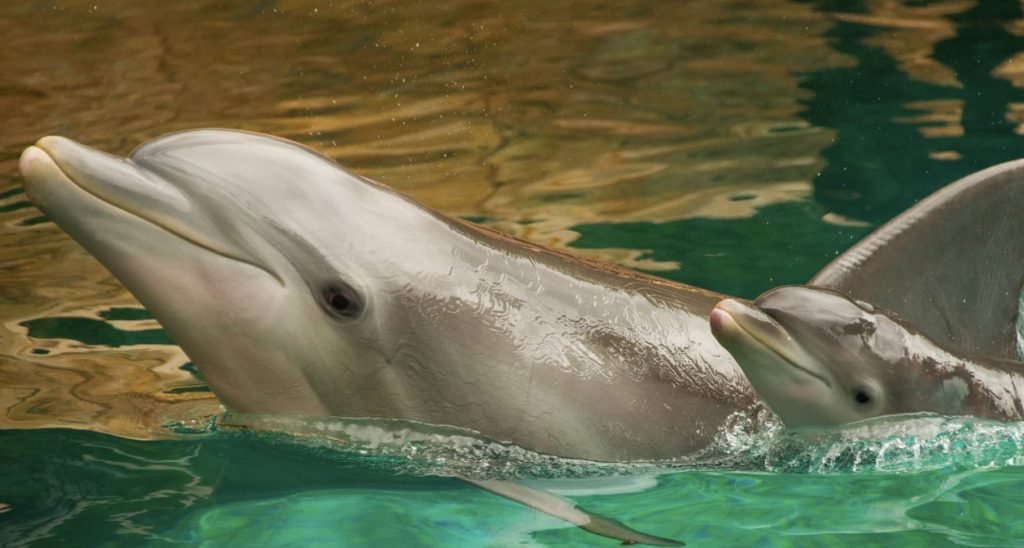New Baby Dolphins at Discovery Cove

Five baby dolphins were born at Discovery Cove within one month of each other:
- Kona, a girl, was born August 3 to mom Roxy;
- Titan, a boy, was born August 6 to mom Calypso;
- Nero, a boy, was born August 7 to mom Nueces;
- Star, a girl, was born August 14 to mom Stella; and
- Storm, born September 2 to mom Hailey.
Storm’s gender has not yet been determined.
At birth, each bottlenose baby dolphin calf weighed approximately 35 pounds and measured about 43 inches in length. The baby dolphins each nurse for several minutes every hour and get 100% of their nutrition from their mothers’ milk.
“An animal birth is a very special time for our team, and having five babies at once is remarkable,” said Discovery Cove Animal Trainer Gina McDaniel. “The last time we had this many new babies was 2009, so this is an exciting time for our dolphins and our animal care team.”
The new moms are attentive, keeping their babies close and swimming constantly to create a “slip stream,” or wake, in which the calves can swim easily, exerting as little energy as possible. Within hours of their arrival, the calves’ tails and dorsal fins — soft and pliable at birth — gradually stiffen, which helps them learn to swim on their own.
“Calypso, Nueces, Stella, and Hailey are all first-time moms, so Roxy has been a great role model for them,” said McDaniel. “Dolphins are highly social animals, so it’s common for new moms to get assistance from experienced moms, who are known in the dolphin world as ‘aunties.’”
The baby dolphins will stay close to their mothers for some time and will soon have the opportunity to interact and play with one another, meet the other moms and eventually be introduced to social groups within the park.
A team of trainers and veterinarians are watching over the moms and baby dolphins around the clock, carefully monitoring and recording their respiration rates, nursing, and overall progress. The data and observations gathered by Discovery Cove will be shared with zoological facilities all over the world.
“We are in a unique position to be able to document dolphins’ physiological and behavioral traits up-close, which adds to the collective body of knowledge regarding their calving, nursing, and care-taking habits,” McDaniel said. “This information is especially valuable to researchers and rescue organizations working with them in the wild. For instance, it is difficult to understand or determine why the dolphin population has suddenly decreased, or a dolphin has stranded itself on the beach. Through our research, observation, and information, we help establish that baseline for what is normal.”
Guests to Discovery Cove may catch a glimpse of the new baby dolphins in the coming weeks, but the park has not yet announced when they will be seen on a regular basis.